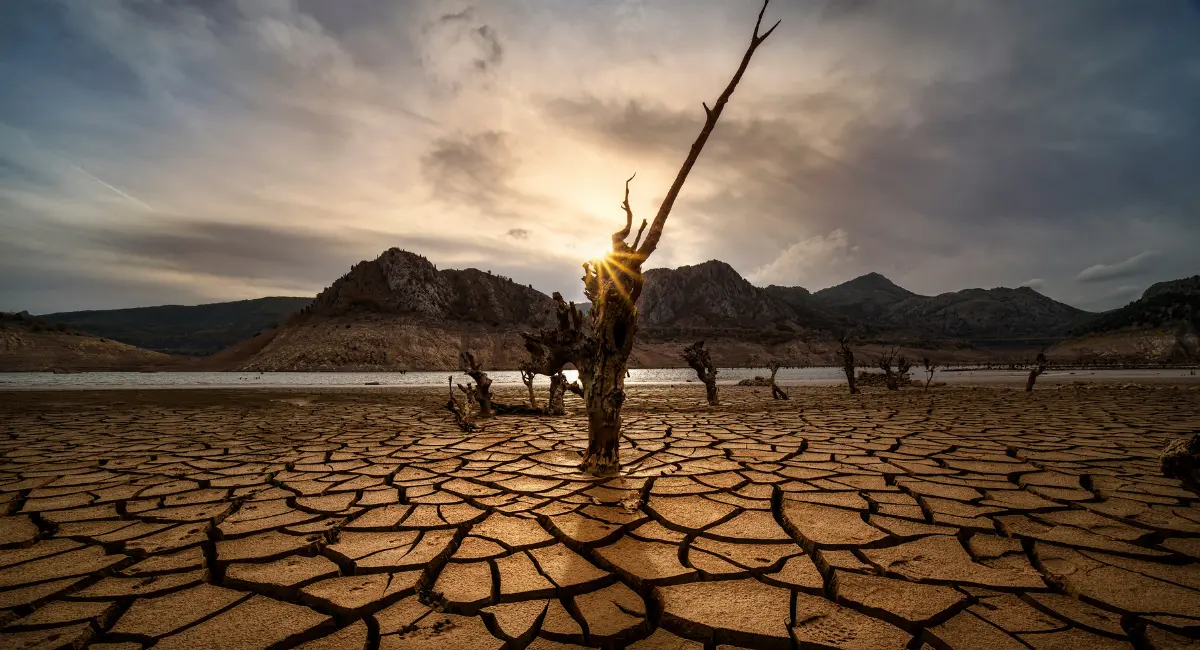Drought and Your Health – Drought, a prolonged period of low rainfall, can have far-reaching consequences that extend well beyond its visible effects on agriculture and the environment. Although it is widely accepted that drought affects water supplies and food production,
Its impact on human health is often underestimated. In this blog, we’ll discuss the different ways drought can affect your health and the strategies you need to safeguard your well-being during this challenging time.
Water Loss and Hydration
The most direct impact of drought on human health is the lack of clean and safe drinking water. Water scarcity not only affects daily hydration but also hygiene and cleanliness. Reduced water availability can lead to the spread of waterborne diseases,
Which will affect vulnerable populations the most. To combat this, it is important to prioritize efficient water use, promote water conservation practices, and explore alternative water sources.
Heat-Related Diseases
Drought often coincides with increased temperatures and heat waves. Prolonged exposure to high temperatures can lead to heat-related illnesses such as heat exhaustion and heatstroke.
Vulnerable populations such as the elderly, children, and people with pre-existing health conditions are at greater risk. To combat these risks, individuals should stay hydrated, wear appropriate clothing, and avoid strenuous activities during peak heat hours.
Air Quality and Respiratory Issues
Drought can contribute to poor air quality due to factors such as dust and wildfire smoke. These conditions aggravate respiratory problems such as asthma and bronchitis.
Individuals with respiratory issues should closely monitor air quality reports, use air purifiers, and limit outdoor activities when air quality is poor. Drought and Your Health
Effect on Food Supply
Drought can reduce crop yields, affecting the availability and affordability of food. Changes in the food supply can affect nutrition, leading to deficiencies in essential nutrients. During drought, prioritize a balanced diet with locally available foods, and consider preserving foods for longer shelf life.
Mental Health Challenges
The stress of dealing with drought-related challenges such as water scarcity and crop failure can take a toll on mental health. Anxiety, depression, and other mental health problems can arise or worsen during such times.

Staying connected with friends and family, seeking professional help, and practicing stress management techniques can help maintain good mental health.
Vector Borne Diseases
Drought can alter ecosystems, which can lead to changes in the distribution of disease-carrying vectors, such as mosquitoes. This can result in the spread of diseases such as West Nile virus and Lyme disease. Using insect repellent, wearing protective clothing, and eliminating stagnant water breeding sites can help prevent these diseases.
Community Resilience
Building community resilience is critical during drought. Collaborative efforts can help ensure that vulnerable populations are supported, and resources are equitably distributed. Community organizations and local governments can play an important role in coordinating relief efforts and providing information on health precautions.
Drought and Your Health – Conclusion
The effects of drought on health are multidimensional, including hydration, nutrition, mental well-being, and more. Tackling these challenges requires awareness, preparedness, and cooperation at the individual and community level.
By adopting sustainable water practices, prioritizing personal health measures, and supporting those most affected, we can reduce the health risks associated with drought and become stronger in the face of adversity. Remember, our well-being is linked to the health of our environment, and by taking care of one, we take care of the other. Drought and Your Health

